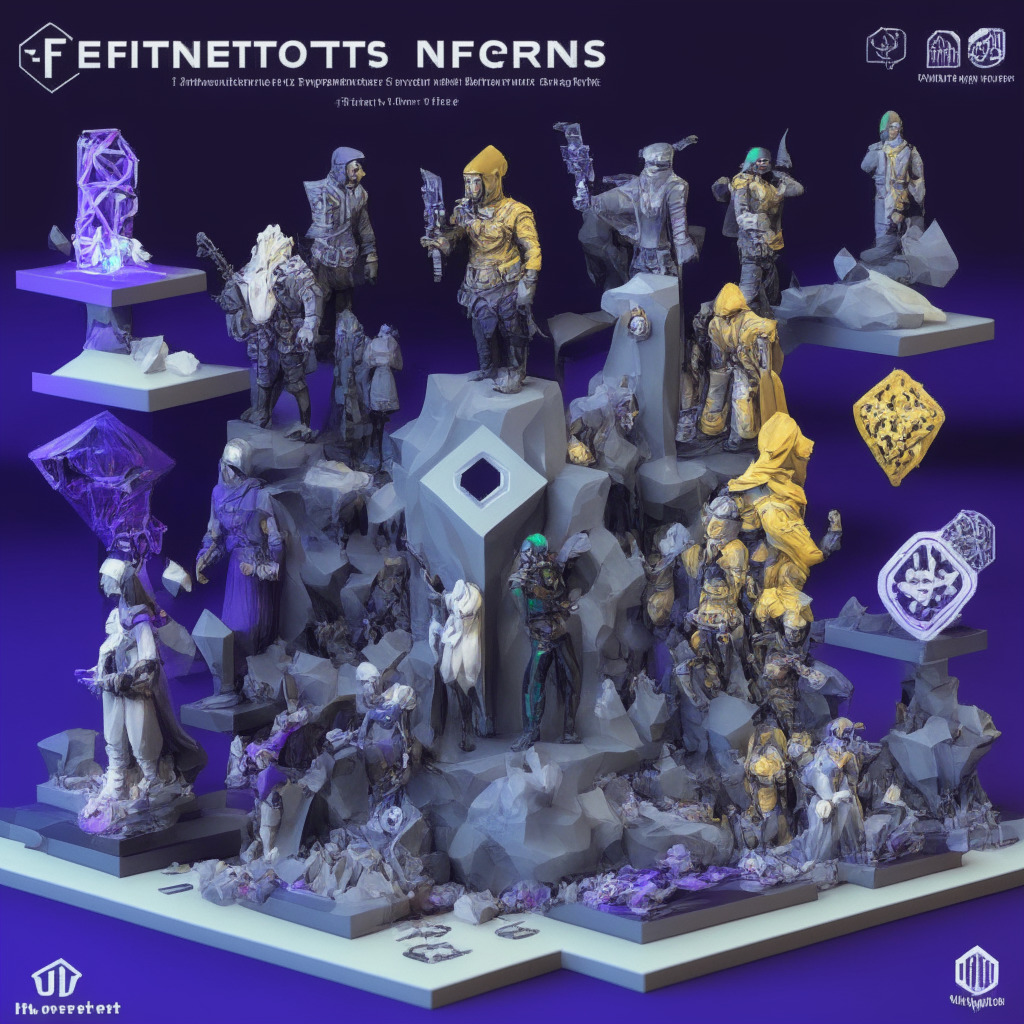Ubisoft, one of the most proactive gaming companies venturing into the Web3 world, has recently expanded its commitment to blockchain and non-fungible tokens (NFTs). This time, the gaming giant behind franchises like Far Cry, Just Dance, and Assassin’s Creed is collaborating with Integral Reality Labs to create Assassin’s Creed Smart Collectibles – NFT access passes minted on Ethereum-scaling network Polygon, coupled with physical collectibles.
These NFTs, known as “Digital Soul,” will be redeemable for 3D-printed keepsakes illustrating characters from the popular game series. Owners will be able to customize the physical collectibles with various outfits, weapons, and poses. The NFTs will come in different rarity levels, and users with higher-tier tokens can access additional customization options.
Incorporating near-field communication (NFC) chips, the physical collectibles provide a unique digital experience when tapped with a smartphone, displaying the digital character version within a companion app. This feature, along with other project-related utilities, will undoubtedly captivate many game enthusiasts.
As for the pricing and availability, a pre-sale is set to launch today, with the official mint of Digital Soul NFTs scheduled for May 16. This collaboration builds on Ubisoft’s and Integral Reality Labs’ prior association, where they released customizable 3D-printed collectibles inspired by game series like Assassin’s Creed, Tom Clancy’s Rainbow Six, and For Honor.
Moreover, Integral Reality Labs will release 1,500 “Piece of Eden” passes, offering holders exclusive benefits, such as priority access to 3D printing and exclusive collectible drops. These innovative steps accentuate Ubisoft’s commitment to the blockchain and NFT space while expanding its user base.
While these digital collectibles have struck a chord with many enthusiasts, critics claim that such moves encourage excessive consumerism and the over-valuation of digital assets. As seen with Assassin’s Creed sales, which surpassed 200 million copies since 2007, there is a significant demand for gaming-related products. However, integrating NFTs into the equation could lead to a speculative market bubble and undermine the true value of these digital tokens.
On the other hand, proponents argue that Ubisoft’s foray into the NFT space reflects an industry-wide shift towards blockchain integration, offering the potential for improved revenue and customer engagement. In the past, Ubisoft adopted Tezos-based weapons and asset skins for Tom Clancy’s Ghost Recon Breakpoint and explored the use of NFTs in other gaming projects.
In conclusion, Ubisoft’s partnership with Integral Reality Labs is an intriguing move for both the gaming and blockchain industries. The combination of NFTs and physical collectibles showcases the vast potential of these digital assets in gaming. However, as with any novel technology, it’s essential to strike the right balance between innovation and sustainable development.
Source: Decrypt




